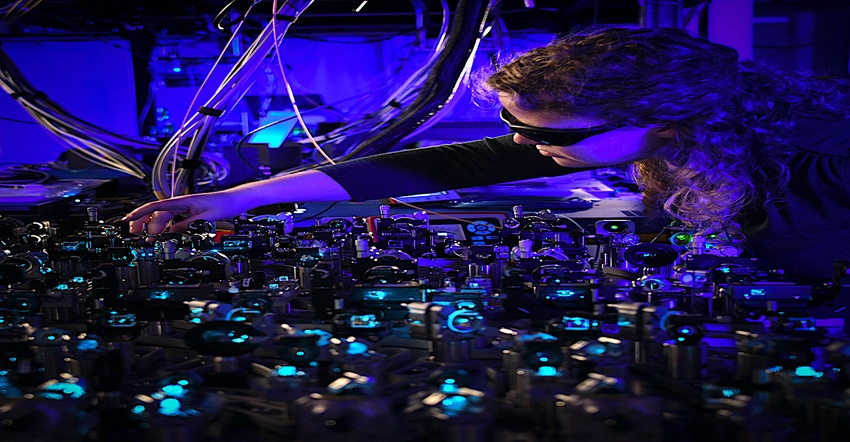Quantum Week Is Almost Here. It’s Time to Learn and Share
The quantum computing world is entangled with excitement. Dubbed IEEE Quantum Week, the event aims to bridge the gap between the science of quantum computing and the development of an industry surrounding it.
October 14, 2021

Lately, there has been an enormous amount of activity occurring in the quantum computing space both in terms of technology but also business ventures. Several startup companies are going public and venture capitalists are betting big bucks on the success of the technology. According to the financial research firm PitchBook, VCs have invested almost $1.02 billion in quantum computing companies this year.
As a sign of the rapidly growing maturity of this nascent industry – or at least the maturity of the hardware – Cambridge Quantum (CQ) has announced what they claim is the world’s first toolkit and library for Quantum Natural Language Processing (QNLP) as an open-source platform. This is a good indicator that the software side of quantum computing is beginning to catch up with the evolving hardware platforms.
“The software toolkit is designed to accelerate the development of practical, real-world Quantum Natural Language Processing applications, including dialogue, text mining, language translation, text-to-speech, language generation, and bioinformatics,” explained Ilyas Khan, founder of CQ.
The great promise of quantum computing depends not only on the success of the hardware scaling but also on the development of applications that can take advantage of the new computational power offered by quantum processors, noted Khan. In this regard, the most important objectives are those that might be classified as AI – and natural language processing (NLP) sits right at the heart of the most intractable problems (helping machines easily process human language). If we crack NLP, we crack AI.
In the past year, QC has demonstrated that natural language processing is ‘quantum native’ as the compositional structure governing language is mathematically the same as that governing quantum systems. According to Khan, anyone can now download lambek, type in sentences, and see them converted into quantum circuits ready to be implemented on a quantum computer or a quantum simulator.
Government Interest
Further, the importance of quantum computing has caught the attention of the U.S. government. Recently, the Biden administration hosted a forum on quantum technologies, with Google, Microsoft, and Amazon in attendance, to discuss the promise and threat of the technology.
But it appears that the U.S. is already playing catch up in this latest of technologies. Observers have said that China has the most sophisticated quantum network including the top two quantum computers. Some security experts feel that a quantum attack could be launched against the US in the next 5 to 10 years.
Quantum Computing Week
All this interest in quantum computing has not been lost in the technical community. Next week, the IEEE International Conference on Quantum Computing and Engineering (QCE) will hold its second annual conference. Dubbed IEEE Quantum Week, the event aims to bridge the gap between the science of quantum computing and the development of an industry surrounding it.
To prepare for a week of lectures, presentations, news, and insights, Design News has compiled a list of recent articles to get you up-to-speed on this leading-edge science and technology:
Can You Protect IoT Devices From RNG Cyber Attacks? Quantum Tech Says Yes - IoT devices are vulnerable to RNG or random number generator failures. Quantum-based cybersecurity offers a way to fight back.
What Are Quantum Bits and Why Do They Matter? IonQ Knows Their Importance - Quantum bits or qubits are a prerequisite for quantum computing. But why?
Quantum Computing Tech Is Amazing. But Will Businesses Find it Useful? - Business viability will depend on quantum error correction, quantum volume, and qubit-sensitive algorithms. What does it all mean?
What Will it Take to Make a Successful Quantum Computing Platform? Two Things - Quantum computing is the future. But it needs a combination of two main elements to succeed.
12 Hardware Tech Innovations That Miniaturize Yet Expand Our World - The theme of “hardware is back” hints at the fantastic devices showcased at this year’s annual CET-Leti’s Innovation Days event.
Determined to Build a Manufacturable Quantum Computer? Look to Silicon - Quantum phenomena can be used to perform complex computations depending upon your approach to the qubits.
Will the Government Succeed in Building a Quantum Computing Center? - It is no easy task to build a quantum computing infrastructure that supports government, academia, and the private sector.
Will Quantum Volume Be The Next Moore's Law? - Doubling performance every year is now the benchmark for quantum computers as designers look to EDA vendors for new automation tools. John Blyler | Jan 13, 2021
4 Experts Let The Cat Out Of The Box On Quantum Computing And Electronic Design - Today’s engineers can design for tomorrow’s quantum computers if they change their state of mind from bits to qubits.
John Blyler is a Design News senior editor, covering the electronics and advanced manufacturing spaces. With a BS in Engineering Physics and an MS in Electrical Engineering, he has years of hardware-software-network systems experience as an editor and engineer within the advanced manufacturing, IoT and semiconductor industries. John has co-authored books related to system engineering and electronics for IEEE, Wiley, and Elsevier.
About the Author(s)
You May Also Like





